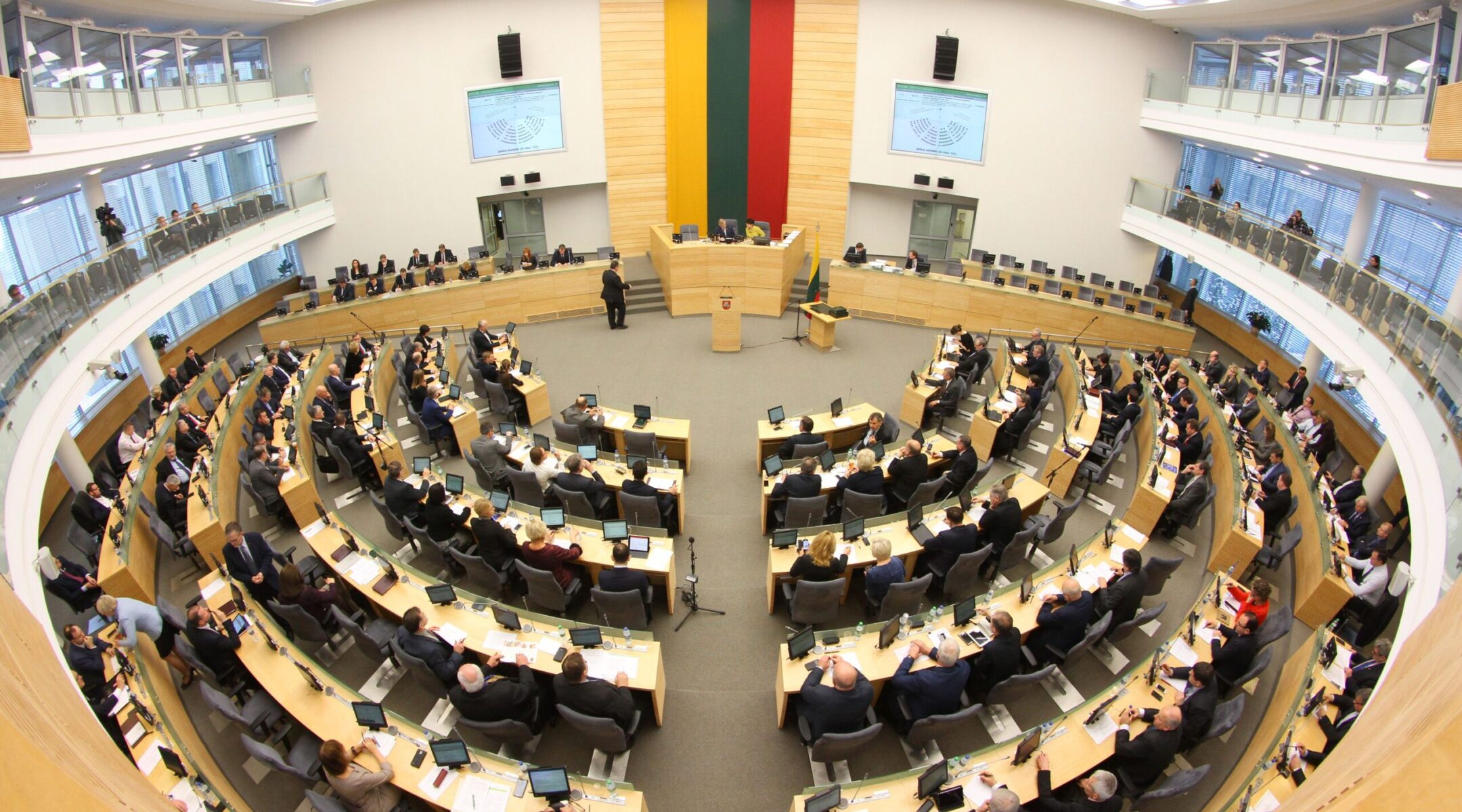(JTA) — Lithuania’s prime minister made what one Jewish organization called an “important step” by introducing legislation to allocate more than $38 million as restitution for Holocaust survivors and their heirs.
Ingrida Šimonytė introduced the bill in the Seimas, Lithuania’s legislature, earlier this month. If passed it would nearly double the money the government had already set aside for restitution claims in a country where 90% of Jews were killed in the Holocaust. Today only 5,000 Jews remain in the country.
“Prime Minister Ingrida Šimonytė’s proposal is an important step to providing a measure of justice to Lithuanian Holocaust survivors and their families for the horrors they suffered during World War II and its aftermath,” the World Jewish Restitution Organization said in a statement. “We look forward to the opportunity to review this new legislation that would continue the process of property restitution and support Jewish life in Lithuania.”
Lithuania has a checkered history when it comes to reckoning with its Holocaust history. The Nazis’ Lithuanian collaborators were involved in many atrocities, including the massacres at Paneriai, a present-day suburb of the capital of Vilnius, where 70,000 Jews were killed between 1941 and 1944. Lithuanian battalions also performed guard duty and organized deportations at the Majdanek death camp in Poland and the Warsaw ghetto.
Jewish leaders objected when, in 2020, Lithuanian lawmakers considered a law that would have declared that neither Lithuania nor its leaders could be blamed for participating in the Holocaust because the country was occupied. And amid the rise in nationalism across Eastern Europe, streets, schools and monuments have been named for Lithuanian collaborators.
The Lithuanian government has previously acted before to compensate Holocaust victims. Over a decade ago, the parliament passed legislation to allocate 36 million Euros, then worth about $72 million, for a Good Will Foundation that funds projects to benefit the country’s Jewish population. The money was considered restitution for communal property seized from Lithuania’s Jewish community under the Nazi occupation.
“This payment represented only partial value of the properties,” the WJRO explained. However, “it provided much needed funds to support Jewish communal life in Lithuania, restored several Jewish heritage sites, and offered modest payments to needy survivors.” The new bill would allow survivors and their heirs to apply for restitution for personal property as well, according to an AFP Report, and also continue to fund the Good Will Foundation.
JTA has documented Jewish history in real-time for over a century. Keep our journalism strong by joining us in supporting independent, award-winning reporting.






